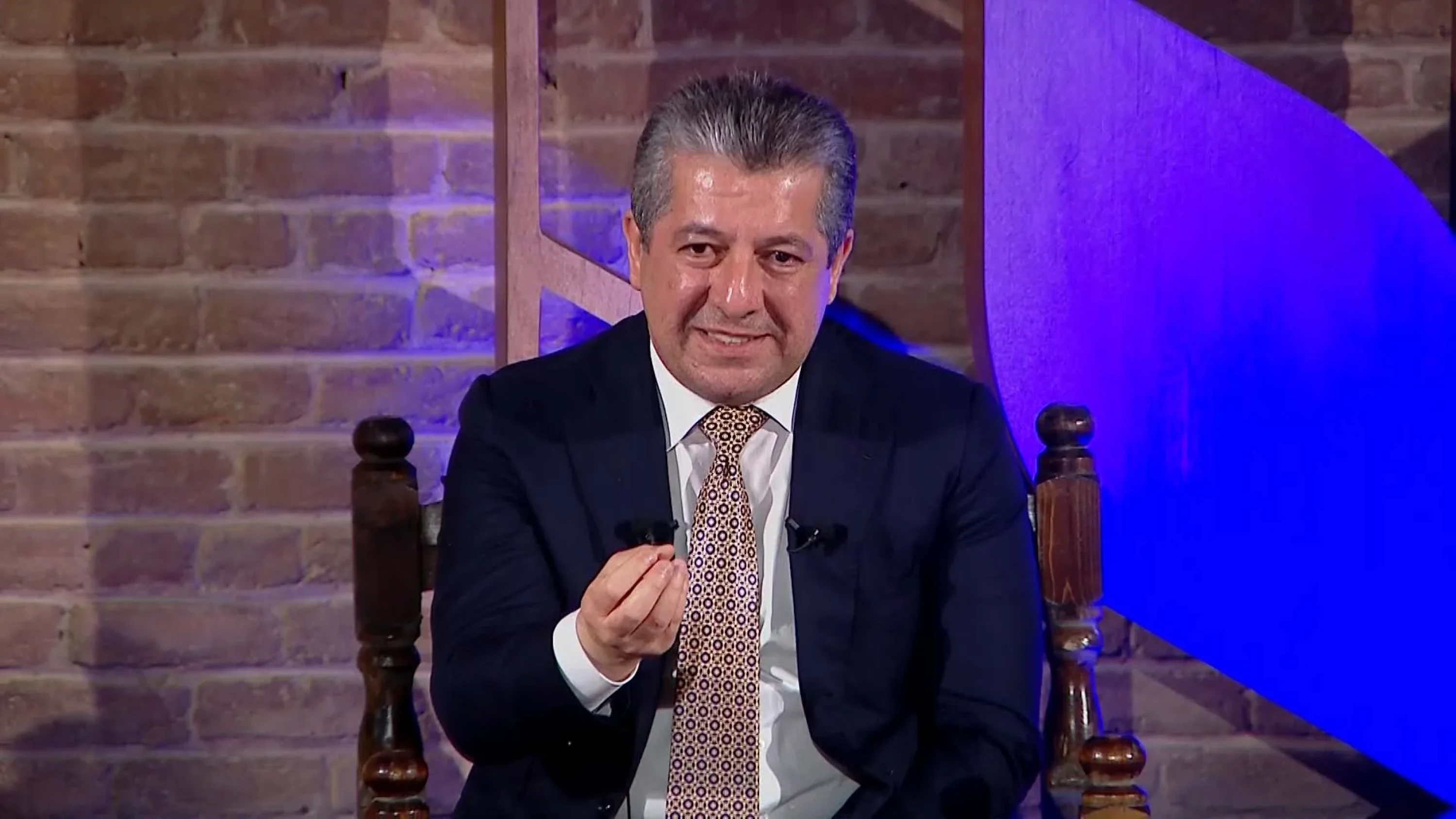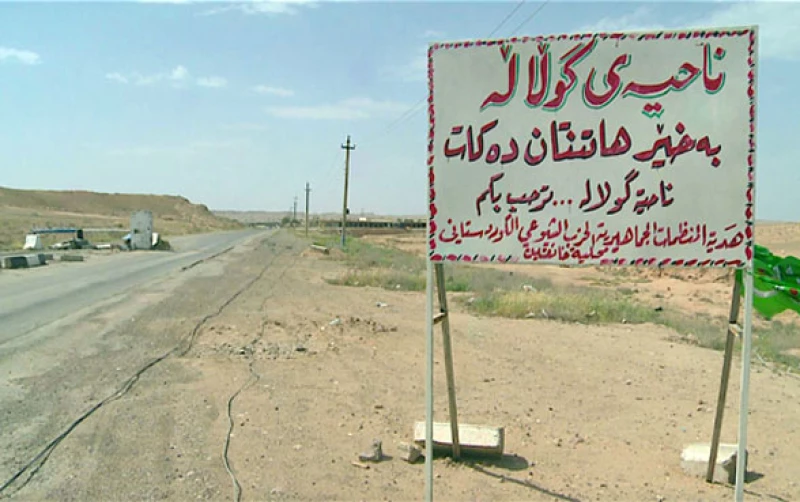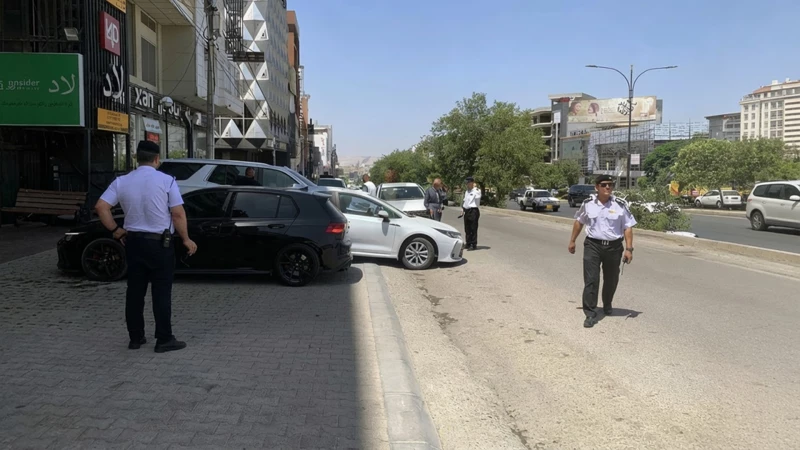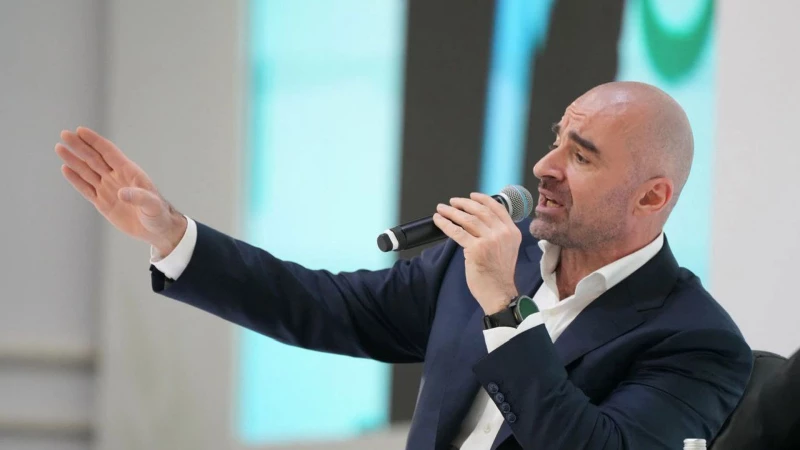ERBIL, Kurdistan Region of Iraq – Kurdistan Region Prime Minister Masrour Barzani on Thursday highlighted a range of his government’s programs during a discussion with youth at Erbil Citadel, including employment opportunities, banking reform, and a landmark round-the-clock electricity initiative.
In the conversation, Barzani said that his cabinet has created over 140,000 jobs for young people in the private sector, primarily focusing on helping entrepreneurs. “The project we have is the development project,” he said, explaining that it seeks to “help young people who want to have their own businesses, their own jobs, or if they want to expand businesses they already have.”
He offered the Kurdistan Regional Government’s (KRG) support for business owners but noted that a modern banking system is crucial for proper support.
“The first thing we need is a banking system, which we unfortunately have not had,” Barzani said. “A banking system where civilians can go to receive money and pay it back in installments, whether they mean to start a business or acquire some of the things they need, such as a house or a car.”
The premier pointed to the MyAccount project as a foundational step towards building such a system, stating that it allows public employees to receive their salaries in coordination with the Central Bank of Iraq and the US Treasury Department transparently and protects them from political influence.
“One of the steps taken towards this is the MyAccount project, where people can receive their salaries in a transparent way, far from political pressures,” he said.
In its endeavor to advance the Kurdistan Region towards a cashless economy, the KRG initiated the digitization of the payroll system for over one million public sector beneficiaries through the MyAccount initiative, which started in September 2023.
The initiative aims to modernize the method by which civil servants receive their salaries, enhancing financial stability and granting beneficiaries access to a diverse array of financial services, including savings accounts.
Economic diversification
Barzani said the KRG has focused on diversifying the economy through the agriculture, tourism, and industrial sectors so that it does not solely rely on oil and gas.
“In the agriculture sector, we saw many times our farmers threw away their products on the street because no one bought them,” he said. “The government not only invested in silos to purchase wheat and other products, but also opened the door for export,” he added, noting that Kurdish agricultural products now reach the Gulf countries, Europe, and the US.
The KRG is also advancing the tourism sector through numerous projects across the Kurdistan Region, according to Barzani. “We are not focusing only on one area of the Region, as each place has its own identity,” he said.
As for the industrial sector, he said the KRG is working towards bringing foreign companies to work in the Region and provide training and new expertise. One example he mentioned was Toyota now having part of its vehicle assembly in Duhok.
Erbil-Baghdad budget disputes
Barzani criticized Baghdad’s treatment of the KRG, lamenting that salary cuts have been used to settle political disputes.
“After 2014, Baghdad’s politics towards the Region changed,” he said, adding, “they cut the budget in phases, especially during the ISIS war in 2014. Until 2017, the Region did not receive its budget at all.” He also explained that the KRG at the time was forced to lend money from companies that purchased its oil, leading to a debt that remains unresolved.
Erbil and Baghdad have been engaged in negotiations for months to address their disagreements over oil exports and domestic revenue.
The Kurdistan Region’s oil exports resumed through Iraq’s State Organization for Marketing of Oil (SOMO) in late September after a halt that lasted over two years, following a tripartite agreement between Erbil, Baghdad, and international oil companies operating in the Region.
After the resolution of the long-standing dispute over oil exports, Erbil and Baghdad’s disagreements over the issue of sharing domestic revenues remain the main point of contention between the two sides, with a temporary settlement reached that would see Erbil send Baghdad 120 billion dinar as the federal treasury’s share of the Kurdistan Region’s domestic revenues until a final resolution is reached.
Barzani said Baghdad still withholds salaries, “the Region’s budget is set in the constitution, which states 14 percent of Iraq’s revenue should go to the Kurdistan Region; however, we have not even received five percent of it,” he stressed.
“For the next year, we will not accept in any way to come into discussions with the federal government in this way,” he asserted.
Runaki Project
The Runaki project was announced by Barzani in October 2024, aiming to eliminate the electricity issues that the Region has struggled with for decades. It seeks to provide 24-hour electricity to the entire Kurdistan Region.
The premier rejected claims that the new initiative to provide round-the-clock electricity is more expensive than before for citizens.
“If someone paid 1,000 Iraqi dinars to the government, they paid 3,000 to private generators, so they paid 4,000 in total,” he said. “Now the government says, ‘I will provide 24-hour electricity not for 1,000 but for 2,000 or 3,000 dinars, but you will not pay for generators,’ so the citizen saves some money. It is not true that it is more expensive.”
Highlighting the reforms in the electricity sector, he said that while Iraq has spent $200 billion toward reaching 24-hour electricity, the Kurdistan Region is on track to provide it to all its citizens by the end of 2026.
As a result of the project, nearly 3,700 diesel generators, which pose health risks due to their carbon emissions, have been phased out across the Kurdistan Region, representing over half of all generators in the Region.
“We have not made miracles happen here; we have just made a reform,” he said.
Digitization and data
Barzani also emphasized the importance of a digital infrastructure in building a modern administration. He pointed to a data center as one of the key steps towards digitizing the Region’s affairs.
“Collecting data is an important condition for implementing a digital system,” he said. “When we asked where the data was, our data was very weak. The first step we took was to establish a data center that is on par with international standards.”
His remarks were in response to a question of how the KRG plans to eliminate the paper-based system of citizens' affairs with the government, which is difficult, time-consuming, and harms the environment.
He said the initiative has been taken by the government; however, it is an intricate process involving large data collection and coordination between all ministries and government bodies.



 Facebook
Facebook
 LinkedIn
LinkedIn
 Telegram
Telegram
 X
X


